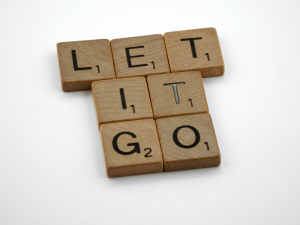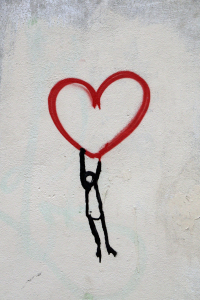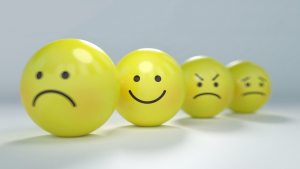When someone wrongs you, one natural response is to want to see justice (or vengeance) done. We want to hurt them as much as they’ve hurt us, if not more. The desire to pay back an eye for an eye and a tooth for a tooth runs deep within us. However, as someone once said, an eye for an eye will leave the entire world blind. There is a better way – the way of Jesus and the way of forgiving others.
 It may seem like following this way of forgiveness is just another way to get disrespected and become a carpet people just walk over. In a dog-eat-dog world defined by competition and looking out for yourself (lest people take advantage of you), it seems foolhardy and a recipe for finishing last in life to go about forgiving people when they wrong or harm us.
It may seem like following this way of forgiveness is just another way to get disrespected and become a carpet people just walk over. In a dog-eat-dog world defined by competition and looking out for yourself (lest people take advantage of you), it seems foolhardy and a recipe for finishing last in life to go about forgiving people when they wrong or harm us.
However, we need to understand what forgiveness is, as well as understand what unforgiveness does to us and our relationship. There is more to forgiveness than the possibility of being taken advantage of and refusal to forgive takes a huge toll on our lives.
What is forgiveness?
Our ideas about forgiveness stem from various sources. Some of us can remember a time when our sibling (or the neighbor kids) snatched a toy or pulled our hair, at which point hysterics ensued and the adults were called in to mediate.
The forced and mumbled “I’m sorry” and the equally forced and meaningless reply “I forgive you” punctuated many hours of childhood play. The hostilities didn’t go away or end that easily – they remained, smoldering, and waiting for some tinder before flaring up again. We suspected they didn’t mean the apology, but we too likely didn’t mean our acceptance of it.
The forced politeness that often surrounds asking for and offering forgiveness from our earliest memories often lingers into adulthood, and that’s often how we understand forgiveness. It’s something polite you do to make sure tempers don’t flare and things return to normal. But tensions still exist beneath the surface, and it won’t take much to reignite the situation because you’re still in your feelings about what the other person said or did to you.
 Forgiveness is about more than politeness. It certainly isn’t about smoothing things over and acting as if nothing happened. When you forgive someone, you choose to let go of any negative feelings you may have toward the person who hurt you. Forgiveness is about relinquishing the desire to pay them back and punish them for what they did – letting go of any feelings of resentment.
Forgiveness is about more than politeness. It certainly isn’t about smoothing things over and acting as if nothing happened. When you forgive someone, you choose to let go of any negative feelings you may have toward the person who hurt you. Forgiveness is about relinquishing the desire to pay them back and punish them for what they did – letting go of any feelings of resentment.
As you can imagine, forgiveness goes deeper than simply saying the words “I forgive you.” It’s a choice that goes to our very core, addressing our heart and mind. Forgiveness also isn’t saying that what the person did to you is a-okay, or that you are now reconciled. We need to be aware that there’s a difference between forgiveness and justice.
Just because you’ve forgiven someone, that doesn’t mean there are no consequences for what they did. Some consequences may be relational, others may be legal. So, if someone you thought was a friend stole from you, you can forgive them, but that doesn’t mean you have to trust them, or that there won’t be legal repercussions for their actions.
Or if your spouse had an affair, you could forgive them, but that doesn’t mean a serious breach of trust hasn’t happened or that the relationship is still intact and the same as before. Forgiveness is more about you and the state of your heart than it is about the other person.
What’s the value of forgiving others?
With all that said, what is the value of forgiving others? There are numerous benefits to forgiving others and not allowing yourself to be resentful of other people. One benefit of forgiveness is that it’s a step toward ending a cycle of retaliation and deeply harbored resentments. There are some striking examples of the results of unforgiveness, and some of these come from the pages of history.
 One prominent example of an unending cycle of violence concerns the infamous Hatfields and McCoys, two families who lived in the 19th century in the West Virginia-Kentucky area. For nearly thirty years, these families and those connected with them engaged in acts of violence and revenge, with one act fueling the next.
One prominent example of an unending cycle of violence concerns the infamous Hatfields and McCoys, two families who lived in the 19th century in the West Virginia-Kentucky area. For nearly thirty years, these families and those connected with them engaged in acts of violence and revenge, with one act fueling the next.
At least a dozen people on each side, including women and children, were claimed by the violence. While most of us don’t necessarily resort to physical violence to address our grievances, our anger can and does often end relationships, lead to acts of sabotage aimed at colleagues or rivals, and much else.
Then, those acts of retaliation may lead to yet more acts that fuel the cycle. To end the cycle, someone must let go and move on from harboring resentment; we often struggle to do this.
Other benefits of forgiveness include:
Releasing yourself from the effects of unforgiveness.
One Johns Hopkins study has shown that holding onto unforgiveness has links to negative health outcomes such as a higher incidence of anxiety, depression, high blood pressure, depressed immune response, and being at higher risk of heart disease.
Being resentful is stressful work, and stress over the long-term is not good for our minds, bodies, and hearts. Forgiving others frees us of those negative feelings towards others, which is better for our mental, emotional, and spiritual health.
Allow yourself to heal and move on.
If the feelings of resentment and anger are unresolved, you remain trapped and it’s hard for you to begin the process of healing and growing past the hurt. Forgiving the person who hurt you is a little like taking the splinter out of a wound so that you can clean it and it can begin to heal. Without removing the splinter, the wound is likely to fester.
Providing room for your other relationships to flourish.
When we refuse to forgive, we fail to deal with the resentment we hold toward those who hurt us, and it doesn’t only affect our relationship with that person. It’s not unheard of for spouses to have problems in their marriage because there was infidelity in a relationship from the distant past that hasn’t yet been released.
 The spouse who was cheated on may develop deep trust issues which have nothing to do with their beloved but has everything to do with the hurt. Our hearts aren’t hermetically sealed or perfectly compartmentalized; our past hurts can affect our present, and people who have nothing to do with the way we were once treated end up bearing the brunt of the aftermath. By forgiving past hurts, you create room for your present relationships to flourish, free from the shadow of the past.
The spouse who was cheated on may develop deep trust issues which have nothing to do with their beloved but has everything to do with the hurt. Our hearts aren’t hermetically sealed or perfectly compartmentalized; our past hurts can affect our present, and people who have nothing to do with the way we were once treated end up bearing the brunt of the aftermath. By forgiving past hurts, you create room for your present relationships to flourish, free from the shadow of the past.
Being at peace with the Lord.
Lastly, when we live in unforgiveness, it can disrupt our fellowship with the Lord. Our relationship with God is connected to our relationship with others. The same God who commanded us to love him with all our heart, soul, mind, and strength also commanded us to love our neighbor as ourselves (Matthew 22:37-40).
Jesus challenged his followers in this way – when we recite the Lord’s Prayer, also known as the “Our Father” we say “forgive us our sins as we have forgiven those who sin against us.” Jesus then concluded his teaching on prayer by saying, “If you forgive those who sin against you, your heavenly Father will forgive you. But if you refuse to forgive others, your Father will not forgive your sins.” (Matthew 6:14-15).
Those are strong words, even bordering on offensive, but they highlight one important truth about our lives – we are all deeply entwined with one another, and God cares deeply about how we treat each other, including how we relate to those who have injured us.
Forgiveness isn’t an easy choice to make or follow through on. It may take a day, several years, or even the rest of your life to forgive someone. Deciding not to hold onto resentment is a choice you may need to make and maintain each day. Some days you’ll succeed, others you won’t. But the benefits of forgiveness for our overall health are so deep and profound that we do ourselves a disservice by holding onto resentment towards others.
If you find that you’re struggling to let go of wrongs committed against you or a loved one, whether it is recent or from your past, you don’t have to wrestle with it alone. Taking the time to find a therapist with whom you can unpack those feelings of unforgiveness and hurt is a great step toward peace of mind and freedom from resentment.
Photos:
“Let It Go”, Courtesy of Brett Jordan, Unsplash.com, CC0 License; “Red Heart and Man”, Courtesy of Nick Fewings, Unsplash.com, CC0 License; “Praying Hands”, Courtesy of Clker-Free-Vector-Images, Pixabay.com, CC0 License; “Emoticons”, courtesy of AbsolutVision, Pixabay.com, CC0 License








